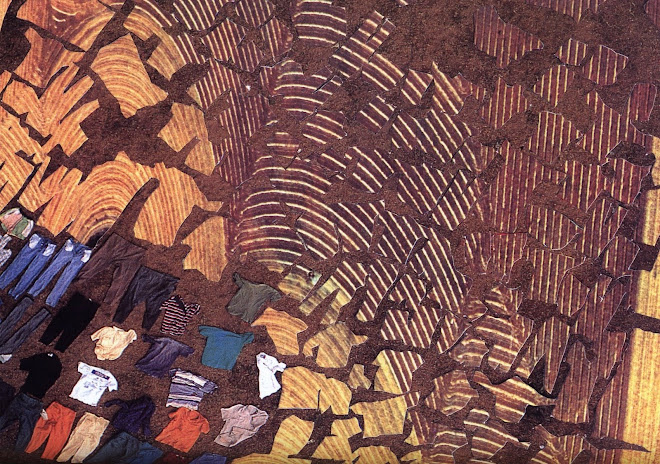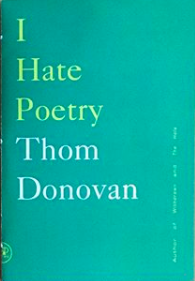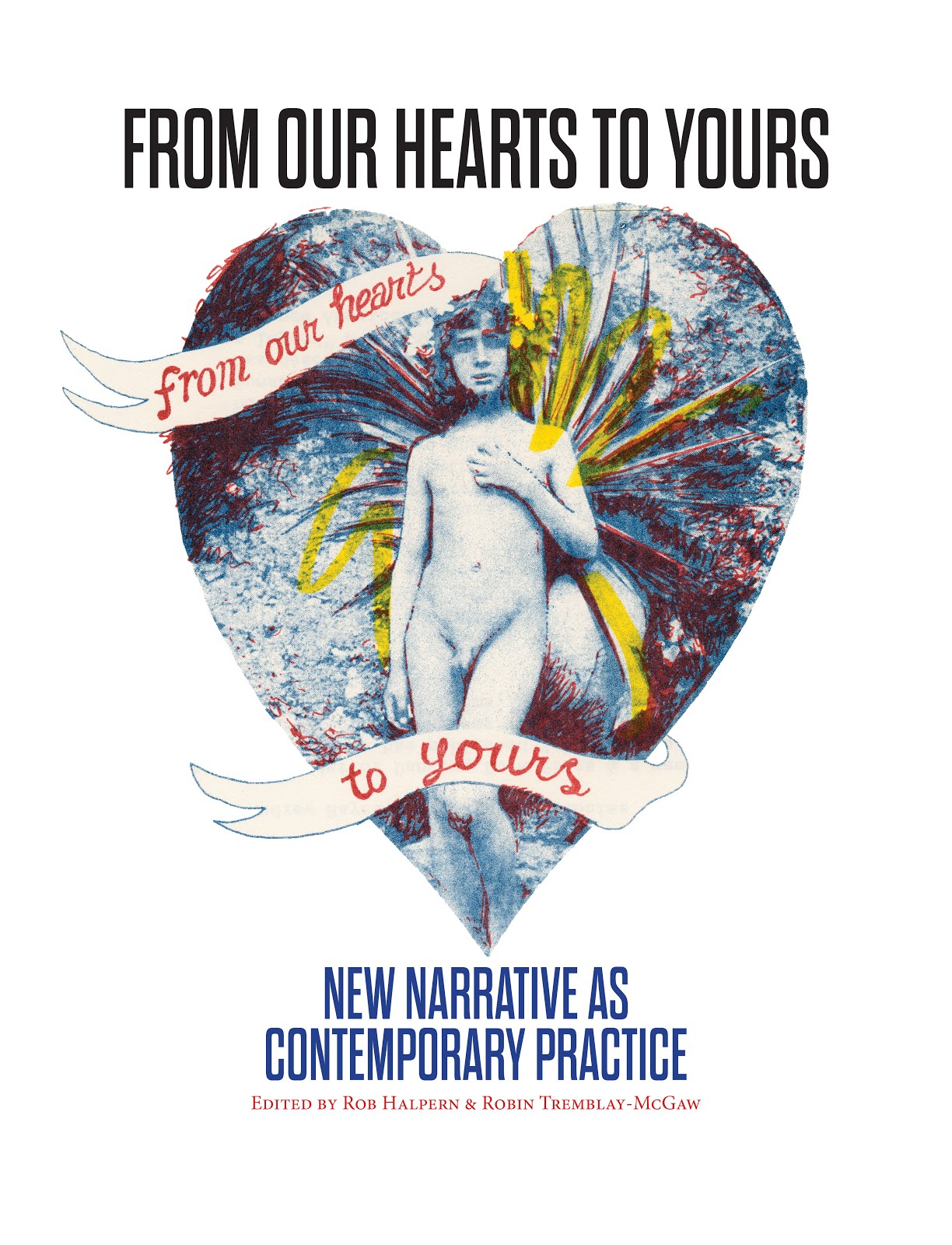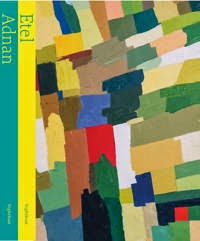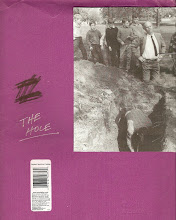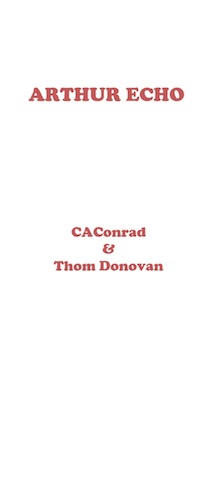Friday, March 30, 2012
Monday, March 26, 2012
Interview with CA Conrad (at The Academy of American Poets)

http://www.poets.org/viewmedia.php/prmMID/22863
Somatic is derived from the Greek, and it's our flesh. It's also the body's cavity, the place where our organs rest, live, and work. The organs where EVERYTHING we eat, drink, and breathe EVERY DAY gets processed, built into the cells of the body, or of course discarded. THE MOLECULES! THE MOLECULES! I like to take the traditional definition of Somatic further because I believe VERY STRONGLY that every memory we have is cellular. The latest research on the human brain locates the actual, physical life of memory. Memory is a THING. It's in the brain, and it's alive, as alive as a toe or lip. We also know from centuries of pressure-point manipulation, acupuncture, and massage that muscles and other human tissue hold memories. Our bodies actually remember. They remember trauma, love, joy. Memory is everything, for without it we couldn't be having this conversation. Living in the present, as my Buddhist friends keep urging, is futile. It's a search that needs the memory of language, the memory of conduct, love, fear; it's a search, which relies, as any search would rely, on memory, and all memory is past unless you are psychic and see the future, but that's just another kind of memory. I have nothing against Buddhism by the way, in fact I have more affection for Buddhism than any other structured religion. My religion is Poetry, not a religion of kindness and love but one of absolute permission. If poetry doesn't strip me naked in front of me enemies then nothing will.
The Mud Proposal // Withdrawn 1st draft

Aryanil Mukherjee and Pat Clifford's The MUD Proposal just dropped, featuring work by Neelanjana Banerjee, Madhuja Mukherjee, David Chirot, Tyrone Williams, Clifford, and myself. Proud to be part of this cross- cultural and disciplinary endeavor, of which Clifford and Mukherjee write: "Any metamorphosis initiates at an epithelial level. It begins by rupturing the skin. The boundary. The veneer of separation that stands against epitaxies that in the pretense of feeling and mapping cultures actually prevents transfusion. The purpose of The Mud Proposal is to excite and showcase projects - literary and cross-media - that serve to hasten the transfiguration of one discipline, motive, tradition, medium, procedure and cultural practice into others through free-associations and meditated exchanges."
***
“Withdrawn” is a draft of a forthcoming book of poems and other texts. Like my first book, The Hole (2012), it responds to conditions of friendship, community, and the relationship between private and public life during a series of ongoing disasters, both global and local, actual and virtual, ecological and geopolitical. In the process of writing The Hole I realized that what separates a “book” from a collection of texts has something to do with the book’s potential to model and activate certain forms of gathering. So I suspect that Withdrawn, to become a book, will require years still of extension and further thought about what its own gathering could mean. Thanks to the editors of BOMB, The Offending Adam, Peacock Online Review, The Poetry Project Newsletter, and WITH + STAND where some of these texts have appeared. Thanks also to Aryanil Mukherjee for inviting me to put this draft together in a PDF form for his MUD project.
Enframing the Brink Part 4 (with Brandon Brown, at BOMBLOG)

http://bombsite.com/issues/1000/articles/6508
Today I walked around my office and thought, this is what contemporary capitalism looks like, I mean, from the crudest, most painterly subject position. Subjects absorbed in rectangles. The perfect fit of our bodies and the rectangles, Bifo’s warning (full of pathos) concerning a world marked by connection replacing one that doesn’t fit, that conjuncts, that meets but doesn’t quite fit. I think “enframing the brink” is a key tactic—a parataxis of forms desperate to make themselves known to us, only available to sense perception on the brink and only representable by finding ways of framing the brink.
Debt (II)
--for David Buuck and James Schuyler
after reading David Graeber's Debt
Debtors take back the park
Against this “communism of the rich”
Take back the square for hoods
We are every one inside
The park we remark upon spring
Mourning not a matter of speech
For when we are all public
No speaking will be saved
We spring there is a debt
There is another
What we have mourned the loss of
The loss of those chains
All there is to lose
Transported by bodies in space
Virtual credits we will pay
Back in peace times
No time for bullion leveraging
Rights to this actual dance
Transported by proximity
The sun does not come out
But it feels like spring anyway
I can only imagine
What art will do
On the other side of occupation
Right now the art of going to jail
The art of being bailed-out
The art of legal fees
“Our rap sheets, ourselves” (D. Buuck)
“What are you doing in there?”
“What are you doing out there?”
(Emerson and Thoreau)
Dialectics of jail time and being sprung
The poetics of white cuffs
Slowly the truth comes out and it hurts
Who hears the sleeping leaves at night?
What art would be without its value
In the marketplace
Who we will owe when this is over
What you will miss is longing to end
The utopian longing in remote controlled boats
On the pond in Central Park
Brought suddenly to a focus
By being in public unquieted
What Olmstead dreamt is spreading
Spread the debt around
Here is a credit
You can use anywhere
A debt owed to the season
Paid in future generations
Who the people are in the future
Do they still breathe air like us
Luxuriate in walking dogs pond-side
As in a Schuyler hymn?
What the opposite of momento mori is
Remember to live
Virtuosity of budding and going to jail
Who will be left to jail us
If we are all in jail
Though it is no wish of mine
Winter lingers in the mind
Other seasons more pastoral
Then this one can be
Don’t forget to put ordinary things in your poems
Things that should most of all remind us
What we owe
Written in blood like the things we make
Like a ledger of bad faith
Think of the things you take
For granted then take
Some of them away
Enabling yourself through this process
Try to write a poem
That will actualize those powers
You didn’t know you had
Like a credit
Like a secret debt.
after reading David Graeber's Debt
Debtors take back the park
Against this “communism of the rich”
Take back the square for hoods
We are every one inside
The park we remark upon spring
Mourning not a matter of speech
For when we are all public
No speaking will be saved
We spring there is a debt
There is another
What we have mourned the loss of
The loss of those chains
All there is to lose
Transported by bodies in space
Virtual credits we will pay
Back in peace times
No time for bullion leveraging
Rights to this actual dance
Transported by proximity
The sun does not come out
But it feels like spring anyway
I can only imagine
What art will do
On the other side of occupation
Right now the art of going to jail
The art of being bailed-out
The art of legal fees
“Our rap sheets, ourselves” (D. Buuck)
“What are you doing in there?”
“What are you doing out there?”
(Emerson and Thoreau)
Dialectics of jail time and being sprung
The poetics of white cuffs
Slowly the truth comes out and it hurts
Who hears the sleeping leaves at night?
What art would be without its value
In the marketplace
Who we will owe when this is over
What you will miss is longing to end
The utopian longing in remote controlled boats
On the pond in Central Park
Brought suddenly to a focus
By being in public unquieted
What Olmstead dreamt is spreading
Spread the debt around
Here is a credit
You can use anywhere
A debt owed to the season
Paid in future generations
Who the people are in the future
Do they still breathe air like us
Luxuriate in walking dogs pond-side
As in a Schuyler hymn?
What the opposite of momento mori is
Remember to live
Virtuosity of budding and going to jail
Who will be left to jail us
If we are all in jail
Though it is no wish of mine
Winter lingers in the mind
Other seasons more pastoral
Then this one can be
Don’t forget to put ordinary things in your poems
Things that should most of all remind us
What we owe
Written in blood like the things we make
Like a ledger of bad faith
Think of the things you take
For granted then take
Some of them away
Enabling yourself through this process
Try to write a poem
That will actualize those powers
You didn’t know you had
Like a credit
Like a secret debt.
Monday, March 19, 2012
100 Issues of PAJ @ CUNY Grad Center

I will be participating in this panel next week with Bonnie Marranca, editor of PAJ, and Claire MacDonald:
http://centerforthehumanities.org/events/100-Issues-of-PAJ-and-the-Future-of-Performance-Art-Criticism
Mar 28, 2012, 6:30pm | Martin E. Segal Theatre
What is the state of performance in art criticism today? Performance Art Journal has provided a history of performance art in print since its founding in 1976 and continues to be the leading voice for the field and the public. How does today’s critical writing assess current debates in performance art, and who are the new voices and venues for this writing? Join critics and curators Bonnie Marranca (editor, PAJ: A Journal of Performance and Art), Claire MacDonald (University of the Arts London/Central St. Martins); Thom Donovan (writer and critic) and others for a panel discussion on the specific characteristics of critical writing about performance art and its recent coalescence into a form of public discourse.
Sunday, March 18, 2012
Enframing the Brink Part 3 (with Brandon Brown, at BOMBLOG)

http://bombsite.com/issues/1000/articles/6497
I also really valued your sense that, on the brink of despair, you feel this simultaneous and “very different feeling” towards the community that one defines oneself in. I mean, I think this is a truly perverse orientation, although I’m not versed enough in psychoanalysis to say that precisely. But the hedonia, the ecstasy that we both experience in our relations (along with the hells of them, of course) does seem impossible with the unbelievable derangement of current conditions. There is perhaps nothing more important to me than this pleasure, and I too think of it as a real balm against realistic morbidities.
Friday, March 09, 2012
Enframing the Brink Part 2 (with Brandon Brown, at BOMBLOG)

http://bombsite.com/articles/6484
As if those voices return to us more real through their framing in a just-left voice message, or through translation works which, as you say at the close of your Persians, always depend on a re-translation by others who will make the work matter through their own performances, a performance by their future bodies.
Saturday, March 03, 2012
"An exercise is the heart"

--for Conrad
An exercise is the heart
Before there was any attachment
To the garbage that was man
That died, that was, again
“I heart,” do you remember when
It was cool to say “I heart”
Words like hearts drift down
The pages, animated gifts
They even remember recent
Conflicts US taxes pay for
What the poets forget
Too avant-garde or not avant-garde enough?
Hard to decide
The way class warfare and genocide
Stick to the ribs
Project your own anthems without them
Lodge your skin your soul in public space
Anathema to this war against the dead
War against animal potential inside us
Fertility to change existence
A (glory) hole if I am blind to no suffering
Writes these lines someday someone will know what
They mean contemporary to them but
Maybe not now smear the world on your body
No one owns your body I will be present to
You if you promise to be present to me
When we are dead what it matters what
We have loved
Intended to be silly disobedience qua innocents
Fuck the world up in reverse reverse the
Smack down in backward motions descend
To rise like a film I want to believe
In the fire crowning our heads
Unspeakably real like fearless speech
Proceed through the misshapen
Sloughing-off eternity
Social antagonism
Like ghosts do
They project space
They perfect a public
Speech in private
With their private parts
Of speech
Phonemes democratize
The mouth one is really
Here because we are all
Here in hell, together
“Why can’t we all
Pull through?,” Robert asks,
The patient being
Universal condition of
An embodied commons
Words form objective existence of love
The order they’re in
Mediating
Love for the
Body/world
Garbage even—
Write our names profane
Instruments so the world
Will be better
Crown our tongues with flame
The point of poems is recognition
Recognition of death so there is no more fear
The terrible things the world has done to us vanish
The terrible things we have done
To the world inspire us to act.
Friday, March 02, 2012
Enframing the Brink... (with Brandon Brown, at BOMBLOG)
Really excited about this correspondence that will be appearing at BOMBLOG in installments for the next month. With the brilliant poet-translator, Brandon Brown.
Many thanks to BOMBLOG editor, Clinton Krute, for his editing and encouragement.
http://bombsite.com/issues/1000/articles/6427
Many thanks to BOMBLOG editor, Clinton Krute, for his editing and encouragement.
http://bombsite.com/issues/1000/articles/6427
Footage from Frank Sherlock Presents (on YouTube)
Here is some footage from the reading I gave with Anne Waldman, for Frank Sherlock Presents
http://www.youtube.com/results?search_query=frank+sherlock+moonstone&sa=X&spell=1&search=Search&oi=spell
http://www.youtube.com/results?search_query=frank+sherlock+moonstone&sa=X&spell=1&search=Search&oi=spell
5 Questions for Contemporary Practice with Andrea Geyer (@Art21)
 http://blog.art21.org/2012/02/28/5-questions-for-contemporary-practice-with-andrea-geyer/
http://blog.art21.org/2012/02/28/5-questions-for-contemporary-practice-with-andrea-geyer/"There are many different forms of expression that are named “art” or “culture.” What relates them for me is their potential to offer an experience, a space of reflection, a place to ponder complex issues, to ask difficult but necessary questions, a site of knowledge, a poetic document of the context and time and conditions of their authorship. I think art is needed because it allows a public space inclusive of a complex diversity of ideas and forms that are otherwise difficult to experience, address, or even recognize. As a collective social space it gives possibility for these ideas to reinsert themselves into parts of a public consciousness. I am interested in a public space of (slight) discomfort, unexpected emotions and pleasure that only art can create. Offering an anchoring point, art has the potential to engage places we don’t know or can’t acknowledge—places of uncertainty. It helps us to recognize the fringes of our own comprehension not as a threat but as potential. Art is a collective space, even if the viewing of the work does not necessarily happen collectively. The idea of the shared experience remains with artworks thus framing it as a political site. The viewers appears bodily and socially as vulnerable and incomplete to herself and to others and is invited to understand this condition not as a shortcoming, but a productive site of actions."
An Appropriated Form for Spectacular Action (@J2)
 https://jacket2.org/commentary/appropriated-form-spectacular-action
https://jacket2.org/commentary/appropriated-form-spectacular-action"Dance emerges less as a metaphor, and more as an appropriated form for spectacular action, in the Spanish group flo6x8’s video, Body Versus Capital (2011), which compiles video of the group’s dancing and singing Flamenco in banks throughout Seville. This work, unlike any other work in the exhibit, documents a form of protest that I find extremely compelling for its tactical reappropriation of a traditional cultural form. Were the members of flo6x8 who perform these songs and dances not virtuosic, I do not think that their work would be nearly as successful. Harnessing the power of this cultural form native to Spain, which relies almost completely on the body (with the exception of basic prosthetics such as heel-toed boots and acoustic guitars) the group activates and agitates a social body. In one video from the compilation, we see a member of the group spill pennies on the floor of a bank then begin to dance over them. In another, no less than twenty dancers “swarm” a bank, forming rows and then a circle. Bank security guards seem at a loss about how to remove the dancers. At one point we see a security guard in pursuit of a dancer as she twirls away from him, continuing to dance."
Subscribe to:
Posts (Atom)
